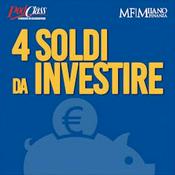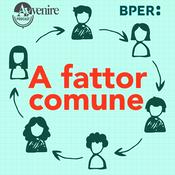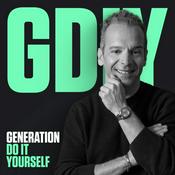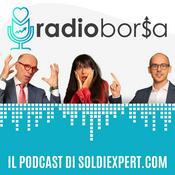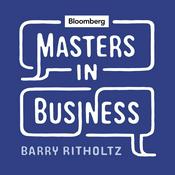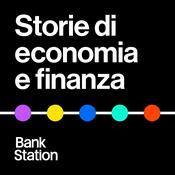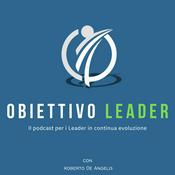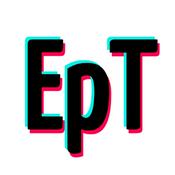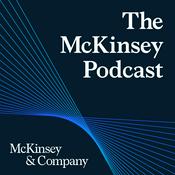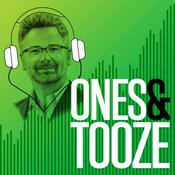The Coaching Crowd® Podcast with Jo Wheatley & Zoe Hawkins
Jo Wheatley and Zoe Hawkins

Ultimo episodio
232 episodi
- What if redundancy was not the end of your career story, but the moment you finally stepped into the work you were meant to do?
In this episode, we explore what it truly means to redundancy proof your career in a world where roles are disappearing, industries are reshaping, and AI is accelerating change at a pace many people never expected. We reflect on how redundancy is rarely only about the loss of a job. It touches identity, confidence, security, and the deep question of who we are when our professional label is removed.
We talk openly about how coaching training develops skills that cannot be automated. Deep listening, emotional intelligence, self regulation, perspective taking, strategic thinking, and the ability to navigate complexity. These are the human capabilities that organisations need more than ever and that individuals need in order to remain adaptable, resilient, and employable across multiple career transitions.
We share how redundancy often creates a crossroads moment. Sometimes it arrives as a shock. Sometimes it arrives as the nudge we secretly needed to leave a role that no longer fitted. Either way, it invites reflection. Who am I beyond my job title. What do I want my work to stand for. What am I being called towards next.
From personal experience, we reflect on how coach training acts as both an insurance policy and a catalyst. It builds metacognition, the ability to notice how you think as well as what you think. It supports emotional regulation during uncertainty. It strengthens decision making and helps people move from fear driven reactions into intentional, values led choices.
We also explore how professional accredited coaching qualifications signal ethical maturity and leadership capability in a changing employment market. Whether you want to become a coach, lead through change, work at board level, build a portfolio career, or future proof yourself against redundancy, the psychological shift that comes through coaching training changes how you experience work, identity, and possibility.
Ultimately, we reflect on how redundancy does not have to be something that happens to you. With the right mindset and skills, it can become something you co create with. A doorway rather than a dead end. A transition rather than a termination.
Timestamps:
00:00 Introduction and why redundancy is now a widespread reality
01:20 Redundancy and identity, why it feels personal
02:10 Skills that cannot be automated through coaching training
03:20 Redundancy as a crossroads and opportunity
05:10 Coach training as a multiplier and resilience builder
07:00 Zoe's personal redundancy story and stepping into business
09:50 Metacognition and emotional regulation in uncertainty
11:40 Coaching skills in leadership and organisational change
13:30 Coaching qualifications as career insurance
15:00 Redundancy as a niche for coaches and organisations
16:50 Decision making, intuition, and embodied confidence
18:45 Choice, perspective, and emotional intelligence
21:00 Depersonalising redundancy and seeing the bigger system
23:00 The psychological shift that future proofs your career
24:00 Next steps and resources
Key Lessons Learned:
Redundancy often impacts identity more than income and requires emotional as well as practical resilience.
Coaching training develops human skills that AI and automation cannot replace.
Metacognition helps people move from fear driven thinking to intentional career choices.
Accredited coach training signals emotional intelligence, ethical maturity, and leadership capability to organisations.
Redundancy can become a catalyst for aligned career change rather than a crisis when supported by reflective practice.
Coaching skills enable adaptability across portfolio careers, leadership roles, consultancy, and board level positions.
Keywords:
Redundancy proofing, coach training, future proof your career, career resilience, emotional intelligence at work, leadership development, career transition support, redundancy coaching, professional coaching qualification, adaptability in the workplace, career change mindset, executive coaching skills.
Links and Resources
www.mycoachingcourse.com
www.igcompany.com/ilm-call
https://igcompany.co.uk/howto - What happens when a client walks into a session with an issue you did not prepare for, and you have to trust your presence rather than your plan?
In this episode of the Podcast, we to explore one of the most real and sometimes unsettling parts of being a coach: not knowing what a client is going to bring, yet being fully responsible for creating a space that can hold it.
We reflected on how often coaches ask questions like, how do I coach confidence, fear, conflict, burnout, overwhelm, or decision making. Beneath those questions is usually something deeper. A desire to feel competent. A wish to feel resourced. A fear of being caught out when a client arrives with something emotionally charged, complex, or unfamiliar.
What struck us during the conversation is how much of coaching is about unlearning the need for control. In most areas of life, we walk into conversations with a sense of the agenda. Coaching is different. The agenda emerges. The topic may be named, but the real work often sits underneath in emotion, belief, identity, or uncertainty.
We talked about how coach training gives us core skills that apply to any topic, yet many coaches still crave practical anchors. Questions, frames, observations, and ways of working that help them feel steady when a client says, I feel overwhelmed, I am stuck in fear, I cannot decide, or I have lost confidence. That is where topic based learning and community become powerful, not as scripts to follow, but as ways to deepen awareness and broaden choice.
We shared how, as coaches, we can sometimes narrow in too quickly on the words a client uses, or unconsciously overlay our own relationship with that topic. When a client brings fear, uncertainty, or burnout, it can trigger our own stories and associations. Building familiarity with common coaching themes helps us stay grounded, curious, and spacious rather than reactive or overly cognitive.
We also explored the fine balance between holding space and offering structure. There are moments when a client genuinely wants to hear what might be possible. A menu of approaches. A sense of what others have found useful. Knowing when to lean in with suggestions and when to stay with emergence is part of the art of coaching, and it develops with experience, supervision, and reflective practice.
One of the deepest reflections for us is that clients rarely bring what they actually need to work on. They bring what they can currently see. The coaching happens in the gap between the stated goal and the hidden pattern, emotion, or belief that is getting in the way. When we deepen our understanding of themes like uncertainty, self trust, overwhelm, decision making, and emotional regulation, we become better at noticing what is present but unspoken.
This episode is also an invitation to coaches who want to accelerate their confidence and capability. Through our how to series and accredited CPD, we are creating spaces to explore topics such as beliefs, burnout, confidence, conflict, fear, overwhelm, procrastination, certainty, metaphors, and constellations. Not to provide formulas, but to build presence, perception, and practical range so that whatever walks into the room, you can meet it with calm, clarity, and skill.
Coaching is not about mastering topics. It is about mastering yourself in the presence of whatever topic arrives.
Timestamps:
00:00 Welcome and why coaches ask how do I coach specific topics
02:20 The unpredictability of coaching and letting go of control
04:30 Building confidence through topic familiarity and CPD
06:40 Balancing suggestion with client led focus
08:10 Fear, uncertainty, and staying resourced as a coach
10:05 Deep dive into coaching uncertainty and emotional states
12:00 Clients bring goals, but the work is often underneath
14:00 The art of observation and naming what is emerging
15:00 CPD programme and community invitation
Key Lessons Learned:
Coaching competence grows when we trust the core skills rather than seeking topic specific formulas
Clients rarely name the real issue at the start of a session
Emotional states such as fear, overwhelm, and uncertainty often drive the presenting topic
Supervision, community, and shared learning accelerate a coach's confidence and pattern recognition
The balance between presence and practical structure is a developmental edge for every coach
Observations offered with care can reveal what clients cannot yet see for themselves
Keywords:
How to coach confidence, coaching uncertainty, emotional coaching, coaching overwhelm, coaching fear, coaching decision making, coach development, coaching presence, coaching supervision, coaching CPD, leadership coaching, self trust in coaching
Links and Resources:
https://www.igcompany.com/howto - Are you looking for CPD that actually fits into real life while still deepening your confidence and capability as a coach?
As we recorded this episode, we found ourselves reflecting on the growing gap between what coaches need from professional development and what most CPD programmes actually deliver. We know how busy life is. We know how difficult it can be to commit to long programmes with heavy time demands. And we also know how frustrating it feels to learn theory without truly knowing how to apply it in real coaching conversations.
This episode is our response to that reality.
We introduce our Done for You 2026 CPD programme, the How To Series, a bite size, practical and accredited professional development journey designed specifically around the topics coaches face every day. Each session is rooted in a popular Coaching Crowd podcast episode and translated into a facilitated, interactive learning experience that bridges the gap between insight and action.
Across the conversation, we talk openly about why this series matters to us. We share how the idea was born from listening closely to our community and noticing which podcast episodes consistently resonate, such as coaching confidence, fear, burnout, overwhelm and uncertainty. These are not abstract topics. They are live issues showing up in coaching rooms week after week.
Each 'How To' session is a two and a half hour live workshop that includes a focused teaching summary, a practical coaching activity, live demonstrations, peer practice, feedback, and reflective discussion. We wanted to create CPD that feels immediately useful, supports skill integration, and builds real coaching confidence. This is learning you can take straight into your next client session.
We also reflect on accessibility. This series is designed for qualified coaches, leaders, managers and those using coaching skills in their work. It is accredited, offering CCEs, while remaining financially accessible and flexible. Coaches can attend individual sessions or commit to the full year and have their 2026 CPD fully mapped out in advance.
Throughout the episode, we talk about community, experimentation and our desire to create a shared learning space where coaches can connect, practise, ask real questions and grow together. This is about more than content. It is about confidence, capability and belonging within the coaching profession.
Timestamps:
00:00 Introduction and why this episode matters
00:57 Why bite size CPD works for busy coaches
01:26 What is included in each How To session
01:55 Overview of the 10 coaching topics
02:24 Creating a full CPD plan for 2026
02:51 Accreditation, CCEs and pricing structure
03:46 Why these topics resonate with coaches
04:06 Who this CPD is designed for
05:04 How to access the programme and resources
06:02 Community, connection and future possibilities
07:43 Limited time offer and enrolment window
08:33 Who can attend and who it is suitable for
09:57 Live demos and experiential learning
12:21 Practice, feedback and reflective integration
13:43 Flexibility, value and long term impact
15:20 Closing reflections and invitation
Key Lessons Learned:
CPD is most effective when it supports immediate application in real coaching conversations
Bite size learning can deliver depth when it is well designed and facilitated
Coaches value live demonstrations as a bridge between theory and practice
Accessibility and affordability increase engagement and consistency with professional development
Community and shared learning strengthen confidence, identity and capability as a coach
Links and Resources:
https://www.igcompany.com/howto
Keywords:
Coaching CPD 2026, accredited coaching CPD, bite size coaching training, coaching professional development, coaching skills development, coaching confidence training, coaching burnout CPD, live coaching workshops, coach accreditation CCEs, The Coaching Crowd podcast - What if the thought of training as a coach has been sitting with you for years for a reason you have not yet fully acknowledged?
As the new year begins, we slow the conversation down and ask a bigger question than whether coach training is a good idea. We explore whether 2026 is the year you finally make a clear decision either to step forward or to consciously let the idea go.
In this episode, we reflect on why coach training often stays on people's mental to do lists for far longer than expected. For many, it is not about gaining a qualification. It is about meaning, connection, identity, and the desire to do work that feels more aligned with personal values. We talk openly about the emotional and practical drivers behind the decision to train as a coach, including career pivots, leadership development, self-awareness, and the longing for deeper conversations at work and in life.
We also address what can quietly hold people back. Waiting to feel ready. Decision paralysis when comparing training providers. The pressure to have a fully formed plan before taking the first step. We share why readiness is rarely something you feel before you act and how clarity often follows commitment rather than precedes it.
Drawing on our own experiences, we reflect on how coach training develops far more than coaching skills. It builds emotional intelligence, confidence, boundaries, ethical practice, and the ability to work with human complexity in a grounded and responsible way. We discuss what coach training really involves and why discomfort and growth are part of the process rather than signs you are doing it wrong.
We also offer a balanced perspective on when coach training may not be the right choice. If you are seeking a quick financial fix, external validation, or if working with emotion actively drains you, this may not be the right investment at this stage of your life. Equally, we share why coaching continues to grow in relevance as human centred skills become more valuable in a world shaped by artificial intelligence and rapid change.
Throughout the conversation, we come back to a simple decision framework. Does it make sense in your head? Does it feel meaningful in your heart? Is there space in your calendar to make it work? When those three align, 2026 may well be the year you move forward.
This episode is an invitation to stop circling the same question and to make a conscious choice that frees up energy, whether that choice is to train as a coach or to redirect your focus elsewhere with confidence.
Timestamps:
00:00 Why this question keeps returning year after year
01:21 Understanding the deeper needs behind coach training
03:09 Common reasons people feel drawn to coaching
04:03 What coach training actually involves
05:24 The myth of waiting until you feel ready
06:22 Choosing a training provider without paralysis
07:42 Questions to ask before committing to a programme
08:55 When coach training may not be the right choice
09:49 Sampling coaching before making a decision
12:37 Career strategy, confidence, and professional identity
14:26 How coach training can change your direction
15:49 Human skills in an AI driven world
18:32 A simple framework for making the decision
20:17 Taking action rather than waiting
Key Lessons Learned:
Coach training is rarely about the certificate and more about meaning, identity, and growth
Waiting to feel ready often delays clarity rather than creating it
Decision making improves when you listen to both head and heart
Coach training develops emotional intelligence, boundaries, and self-awareness
You do not need a full plan for how coaching will fit into your future to begin
Conscious decisions free up mental and emotional capacity
Human centred skills are becoming more valuable, not less
Links and Resources:
https://www.mycoachingcourse.com
https://www.igcompany.com
Keywords:
coach training, train as a coach, coaching career, coaching skills, becoming a coach, leadership coaching, personal development, emotional intelligence, career change coaching, - 2026 CPD Accelerator: https://igcompany.com/CPD2026
What if the way you approach your CPD this year could fundamentally shape your confidence, energy, and impact as a coach?
In this episode, we sat down to have an honest, grounded conversation about what continuous professional development really looks like for coaches in practice, not theory. As Master Accredited Coaches and founders of an accredited coach training provider, we reflected openly on our own CPD journeys, including the years of intense learning, the quieter phases focused on business growth, and the moments where CPD crept up on us through deadlines, reaccreditation reminders, or a deep need for stimulation and renewal.
We explored why so many coaches fall into reactive CPD patterns, binge learning one year and neglecting it the next, and what happens when CPD becomes something you chase at the last minute rather than plan with intention. Throughout the conversation, we found ourseleves reflecting on how powerful it feels when CPD is aligned with who you are as a coach, the clients you serve, and the impact you want to have, rather than driven by fear, comparison, or industry pressure.
We talked about compassion fatigue, confidence dips, and the quiet anxiety that can show up when CV requests or accreditation deadlines land unexpectedly. We also explored the joy of learning for learning's sake, the gift of community and connection that comes from cohort-based CPD, and the way one programme can open doors you did not even know existed.
This episode is also about practicality. We discussed the importance of anchoring CPD into your diary, planning financially, and understanding your own learning preferences, whether that is bite-sized learning, intensive programmes, or facilitated cohorts. We share reflections on how CPD can reignite momentum for early-stage coaches, support experienced coaches returning after time away, and help those who trained years ago feel current, capable, and confident again in today's coaching landscape.
As we step into 2026, this conversation is an invitation to pause, reflect, and choose your CPD with clarity and intention. We also introduced the CPD Accelerator, a short, focused experience designed to help you map out your CPD for the year ahead in a way that feels supportive, energising, and achievable.
Timestamps:
00:00 Introduction and why CPD matters at the start of a new year
00:57 Our personal experiences of binge learning and CPD cycles
01:50 Why coaches need CPD that reflects real client issues
03:36 Planning CPD with intention rather than urgency
04:35 Compassion fatigue and filling your own cup as a coach
06:18 Missing opportunities and the cost of not planning ahead
08:30 Choosing CPD from confidence rather than fear
09:49 The power of community and cohort-based learning
11:28 CPD for early-stage and returning coaches
14:37 When CPD is imperfect and still valuable
18:15 Introducing the CPD Accelerator for 2026
Key Lessons Learned:
CPD has the power to shape not only your skills, but your confidence, energy, and identity as a coach.
Planning CPD early creates focus, financial clarity, and space to choose learning that truly fits.
The best CPD is aligned with your strengths, gaps, and the clients you want to serve.
Community and connection are often as valuable as the content itself.
CPD works best when entered from a place of intention rather than panic or comparison.
Links & Resources:
CPD Accelerator: https://www.igcompany.com/CPD2026
How to Coach Series: https://www.igcompany.com/howto
Keywords:
Coach CPD 2026, coaching continuous professional development, CPD planning for coaches, coach accreditation CPD, coaching confidence development, professional development for coaches, coaching CPD programmes, coach learning and development,
Altri podcast di Economia
Podcast di tendenza in Economia
Su The Coaching Crowd® Podcast with Jo Wheatley & Zoe Hawkins
The Coaching Crowd® Podcast is a weekly podcast for compassionate, courageous leaders, HR professionals and high achievers who are passionate about helping others to find alignment in their lives through coaching, and who are thinking of training and developing as a coach. Hosted by Zoe Hawkins and Jo Wheatley, Founders of Global Coaching Training Company "In Good Company", based in the UK, (https://www.igcompany.com). Zoe and Jo are Master Accredited, Award Winning and Multi Award Nominated coaches, coach trainers and coach supervisors. They are authors of the best selling book 'Deciding to Coach: The Mindset & Business Strategy For Aspiring Coaches'.
Each episode focuses on a different element of what it is to be a coach and you'll listen in as Zoe and Jo discuss the topic through different lenses. You'll discover practical tools and resources you need to support your coaching as you learn all about becoming a qualified and certified coach. This podcast is a go-to resource for learning more about coaching and the mindset needed to be a world class coach. You'll learn how to enable clients to truly know who they are, what their hearts call for and how to understand their values, beliefs and unconscious needs. Coaching goes beyond professional success and personal fulfilment and focuses on supporting everyday mental health. As you learn more about coaching, you learn to coach yourself.
You are In Good Company with The Coaching Crowd®. In Good Company offers accredited coaching qualifications for individuals and organisations around the world, as well as ground breaking accredited CPD for coaches such as the trade marked Emotions Coaching Practitioner Training. You can join our courses and learn more about our communities here www.igcompany.co.uk and take our free quiz to find out which coaching course is right for you www.mycoachingcourse.com.
Sito web del podcastAscolta The Coaching Crowd® Podcast with Jo Wheatley & Zoe Hawkins, BRANDY | Storie di Brand Daily Show e molti altri podcast da tutto il mondo con l’applicazione di radio.it

Scarica l'app gratuita radio.it
- Salva le radio e i podcast favoriti
- Streaming via Wi-Fi o Bluetooth
- Supporta Carplay & Android Auto
- Molte altre funzioni dell'app
Scarica l'app gratuita radio.it
- Salva le radio e i podcast favoriti
- Streaming via Wi-Fi o Bluetooth
- Supporta Carplay & Android Auto
- Molte altre funzioni dell'app


The Coaching Crowd® Podcast with Jo Wheatley & Zoe Hawkins
Scansione il codice,
scarica l'app,
ascolta.
scarica l'app,
ascolta.










